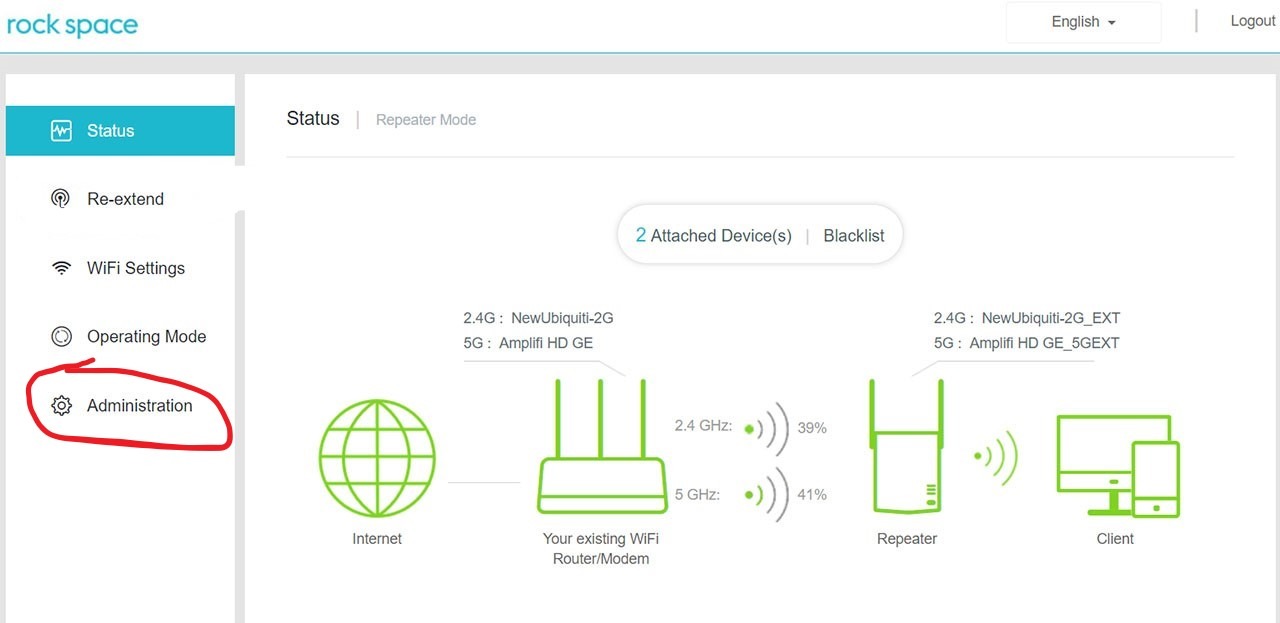5 5 minutes
Wondering! How to speed up Rock space Wi-Fi extender? There are so many ways to boost your network. We have the list of recommendations that will help you to boost your Rock space Wi-Fi extender. We will discuss step by step to know how we can boost the Rock space Wi-Fi extender. Must read the full article carefully and just simply go on with the recommendations we have for you.
- Ways to Boost Your WiFi
There are so many ways. So we discuss one by one:
Good Place for Your Extender
Firstly you need to know that all places are not good for extenders. We recommend keeping the extender distant from metal objects and appliances that release electromagnetic waves. Also distant from objects like glass, wood, plastics, and cardboard. The household appliances release electromagnetic waves including kitchen objects like stoves, microwave ovens, and dishwashers. So we recommend avoiding these places to place your extender.
Keep Your Extender Updated
To know if your extender has the newest firmware available:
1. First you need to open any web browser on your connected device.
2. Here in the IP address, enter the IP address and click to enter.
3. Now you will see the Log in page, here enter the default username and password.
4. After that select Firmware Update.
5. Hold on till your router searches and installs the latest firmware.
Note: We recommend not interrupting the update. It will take time and your extender acts to be unresponsive, so give it a moment prior to you disconnecting the extender from power and restarting it.
- Get a Stronger Antenna
Mostly Wi-Fi extender accompanies small, weak antennas. It’s not that manufacturers want to save lots of every cent they will, but powerful Wi-Fi antennas tend to be hideously large. Compared to the antenna that came together with your router, which probably is simply a couple of inches tall and also has 4 dB gain, a 10-dB antenna is often anywhere between 10 to fifteen inches tall.
But if you don’t mind the dimensions, a new, powerful Wi-Fi antenna may be a good way how you’ll boost Wi-Fi reception or office without buying a replacement router.
There are several different types of Wi-Fi antennas, but the sole type you would like to worry about is that the common “rubber duck” antenna, which is an electrically short monopole antenna that consists of a springy wire within the shape of a narrow helix, sealed during a rubber or plastic jacket to guard the antenna.
Such antennas use an equivalent RP-SMA connector, and there are many various models available on Amazon and other online stores. Some even accompany a handy extension cable that permits you to put the antenna farther far away from your router to realize optimal signal distribution. - Buy a Wi-Fi Repeater/ Booster/ Extender
Even though they’re mentioned by many names like repeaters, Wi-Fi boosters and extenders are basically equivalent things.
Wi-Fi extenders are comparatively simple devices that, take an existing signal from your Wi-Fi router and rebroadcast it as a replacement network. This new network is simply an extension of your main network, and everyone’s data that undergo it also undergo the most networks.
Wi-Fi boosters and extenders are quite similar, but they boost up the prevailing signal before rebroadcasting it to make a second network. Because Wi-Fi boosters typically have a greater range than Wi-Fi repeaters, they create sense in situations where the first signal is extremely weak. - Switch to 5 GHz
The 5 GHz wireless frequency supply faster data rates at lesser distances and is usually much less busy than the two. 5 GHz wireless frequencies. If your router supports it, consider switching there too for a moment short-range speed boost.
1. To boost your Wi-Fi by switching extender to 5 GHz:
2. First you need to log in to your extender as admin.
3. Then visit settings.
4. Here, open the Wireless Settings tab.
5. After that change the 802.11 bands from 2.4 GHz to 5 GHz.
6. Finally click to apply.
7. Lastly restart your extender to apply the new settings.
Note: 5 GHz wireless frequency does not penetrate solid objects closely also because of the 2.4 GHz wireless frequency. This will be a drag in office buildings and residential areas, so it’s advisable to always use 5 GHz in conjunction with 2.4 GHz. That way, you’ll get the simplest of both worlds.



